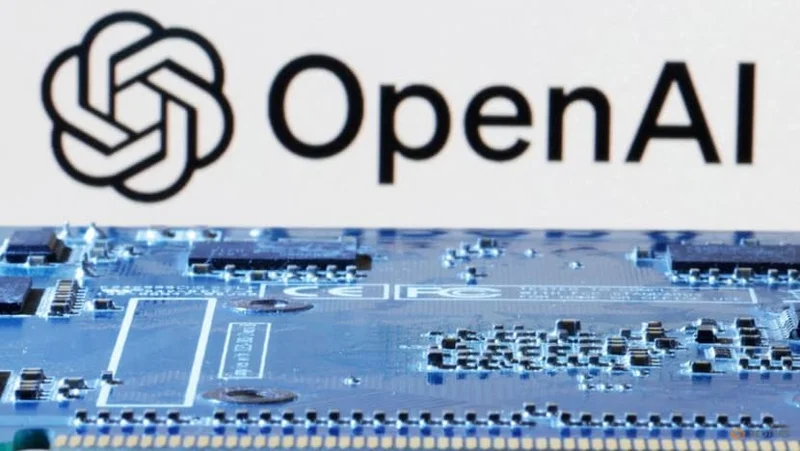Article Directory
So, OpenAI Plans For IPO. Let’s all take a moment to act surprised.
The rumored OpenAI IPO date is floating around late 2026, with a valuation that makes your eyes water: one trillion dollars (OpenAI has started work on an IPO that could value the company at $1 trillion). A cool `$1,000,000,000,000`. For a company that started as a humble nonprofit research lab dedicated to saving humanity from the robot apocalypse. The irony is so thick you could cut it with a laser beam from a T-800.
I watched Sam Altman on that livestream, looking earnest as ever, talking about the company’s massive “capital needs.” He said an IPO is the “most likely path for us.” You could almost see the dollar signs reflecting in his pupils. This isn't a pivot; it's a complete 180-degree burnout turn that leaves the company's supposed mission statement choking in a cloud of exhaust fumes.
This whole thing feels less like a bold step into the future and more like the final, predictable scene in a movie we’ve all seen a hundred times. The idealistic startup gets a taste of success and immediately starts measuring drapes for its Wall Street corner office.
"Public Benefit"... For Who, Exactly?
Let's talk about the new corporate structure, because it’s a masterpiece of public relations. OpenAI is now a "public benefit corporation," or PBC. It sounds so wholesome, doesn't it? Like a community bake sale, but with world-altering artificial intelligence.
Here’s the breakdown. The original nonprofit, now the "OpenAI Foundation," gets a 26% stake. Great. But who gets the rest? Well, Microsoft, their sugar daddy, gets the biggest slice at 27%, worth a cool $135 billion. Employees, past and present, get another 26%. It’s offcourse a necessary step for them to keep talent. But let’s be real here. This isn't a structure designed for public benefit. This is a structure designed to make a handful of people and one mega-corporation obscenely, generationally wealthy.
This is a bad idea. No, 'bad' doesn't cover it—this is a five-alarm dumpster fire of corporate doublespeak. They’re selling us a utopian vision of AI for all, while simultaneously carving up the pie for themselves and their buddies in Redmond. What "benefit" does the public actually get when the company that could automate millions of jobs is primarily owned by investors looking for a return? Are we just supposed to be grateful that a "foundation" gets to throw around some philanthropic chump change while the mothership prints money?

It's like a pirate ship declaring itself a cruise line because it donates 10% of its plundered treasure to an orphanage. The business model is still plunder. You can't just slap a feel-good label on a venture capital vehicle and expect us not to see the gears turning underneath.
The Trillion-Dollar Hunger
The justification for all this is the astronomical cost of, well, existing. OpenAI is burning through cash faster than a crypto bro in Miami. They need GPUs, data centers, and "pricey AI talent." Projections of $20 billion in revenue sound impressive until you realize their losses are climbing just as steeply. Altman needs capital. A lot of it. He's talking about a trillion-dollar infrastructure buildout.
This whole operation is like trying to build a rocket to Mars by continuously selling pieces of the rocket itself to fund the fuel. You might get a spectacular launch, but what's left of the ship when it finally reaches orbit? This IPO isn't a victory lap; it's a desperate fundraising round disguised as one. They’re not selling shares because they’re stable; they’re selling shares because they have an insatiable furnace to feed.
And what are they feeding it for? To build things like an "AI research intern" that can automatically analyze datasets and test models. Translation: they're building software to replace the very "pricey AI talent" they're currently paying for. How wonderfully efficient. First, they come for the writers and artists, then the coders, and eventually, their own engineers. It's a snake eating its own tail, funded by our 401(k)s.
Altman says it's the "most likely path" because of capital needs, which is corpo-speak for "we're burning money so fast that..." you can finish the sentence. It’s a race to AGI, sure, but it’s also a race to stay solvent.
Then again, maybe I'm just an old cynic. Maybe this really is the only way to build the future. But when the future requires a trillion-dollar check from Wall Street, I have to ask: whose future are we actually building?
Just Call It What It Is
Let's drop the charade. This isn't about ethics, or safety, or the long-term benefit of humanity. This is the final, inevitable monetization of a world-changing technology. The "nonprofit" origin story was just a quirky prologue. Now we're at the main event: the part where the founders and early investors get paid. It’s the Silicon Valley playbook, chapter for chapter. Don't insult our intelligence by pretending it's anything else.
